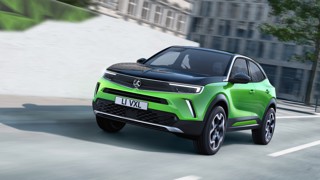Vehicle Excise Duty (VED) should be increased on the most polluting cars to encourage the switch to cleaner fuels, a Committee on Climate Change (CCC) report suggests.
In its annual report to Parliament, it says that ministers must seize the opportunity to turn the Covid-19 crisis into a defining moment in the fight against climate change.
CCC chairman, Lord Deben, said: “The UK is facing its biggest economic shock for a generation. Meanwhile, the global crisis of climate change is accelerating. We have a once-in-a-lifetime opportunity to address these urgent challenges together; it’s there for the taking.”
The report recommends bringing forward the date for ending sales of new conventional cars from 2035 to 2032, alongside a range of other measures, including increasing taxes on some vehicles.
It says that ambitions for supporting active travel and for decarbonising cars and vans must be translated to action in the Transport Decarbonisation Plan, due later in 2020.
For example, there should be a “rising mandate” for car companies to sell a minimum share of zero-emissions vehicles, reaching 100% by 2032 at the latest.
The sort of policy package targeted at the car and van markets must also be extended to other vehicles, including heavy goods vehicles, the report suggests.
Lord Debden explained: “The steps that the UK takes to rebuild from the Covid-19 pandemic can accelerate the transition to a successful and low-carbon economy and improve our climate resilience. Choices that lock in emissions or climate risks are unacceptable.”
The report highlights how company car tax reforms, alongside purchase grants and preferential tax treatment, are “providing a strong consumer incentive to purchase low-carbon vehicles”.
However, it says that “more could be done with Vehicle Excise Duty to strengthen incentives for all buyers and to discourage the most polluting vehicle purchases”.
The report says: “Greater use of carbon taxes can support the public finances and strengthen incentives to reduce emissions. They are particularly attractive when global oil prices, and therefore consumers' energy costs, are low, as they are now.
“Particular attention is needed to where the costs and benefits of action fall, given the uneven effects of the Covid-19 crisis.”
The Government advisers acknowledge that “important steps” have been taken in the past year, but say “much remains to be done”.
For the first time the Committee on Climate Change sets out its recommendations Government department by Government department.
These are the urgent steps that must be taken in the months ahead to initiate a green, resilient Covid-19 recovery, it says.
They can be delivered through strong co-ordination across Whitehall. Doing so will propel the UK towards more rapid climate progress and position the country as an international climate leader ahead of the pivotal COP26 climate summit in Glasgow next year.
A Treasury Net Zero Review has been launched to "consider how the transition to Net Zero will be funded and assess options for where the costs will fall", in line with the Committee's recommendation.
“A just transition is a crucial part of meeting our Net Zero target,” the report says.
“The review should feed in immediately to plans for the COVID-19 recovery and put Net Zero at the heart of the UK's economic strategy.”
Welcoming the report, Ian Johnston, CEO of Engenie said: “We have a once in a lifetime opportunity to bring about a step-change in low carbon transport.
“By taxing cheap oil and using the revenue to subsidise electric vehicles, drivers will have the confidence to make the switch to electric on mass, while also creating countless green jobs.
“Electric vehicles can be the driving force behind our economic recovery but the government must act on these recommendations immediately to avoid being left behind.”
Toby Poston, director of corporate affairs at the British Vehicle Rental and Leasing Association (BVRLA), added: “It is too early to say whether 2032 is a realistic target date for the entire new car and van market to go zero-emission.
"In the fleet sector, the zero emission vehicle outlook varies considerably depending on what type of vehicle you are using and what your operating model is."
The BVRLA is calling for a more segmented approach that considers what is realistic for all vehicle types.
"Suitable vehicle supply, infrastructure, range and cost of ownership is not there yet for all fleet users," continued Poston.
"The challenges faced by LCV and HGV operators is very different to those faced by car fleet operators, who are further along on the road to zero.
“While we welcome measures that help ensure an adequate supply of new electric vehicles into the UK, we would not support a zero emission vehicle mandate, particularly if it also led to any kind of 'fleet EV mandate' requiring companies to make a certain portion of their fleet zero-emission.
"With vehicle availability, affordability and infrastructure not being where it needs to be, the market is just not ready for this kind of operating constraints at a time.
“These issues are fundamental to driving an uptake in zero emission vehicles and the BVRLA will continue to make recommendations to Government as to what support is needed.”

























Steve Boucher - 25/06/2020 11:49
So the poorest and most geographically isolated car owners are going to be penalised because they can't afford a newer, less polluting car and don't have ready access to public transport.